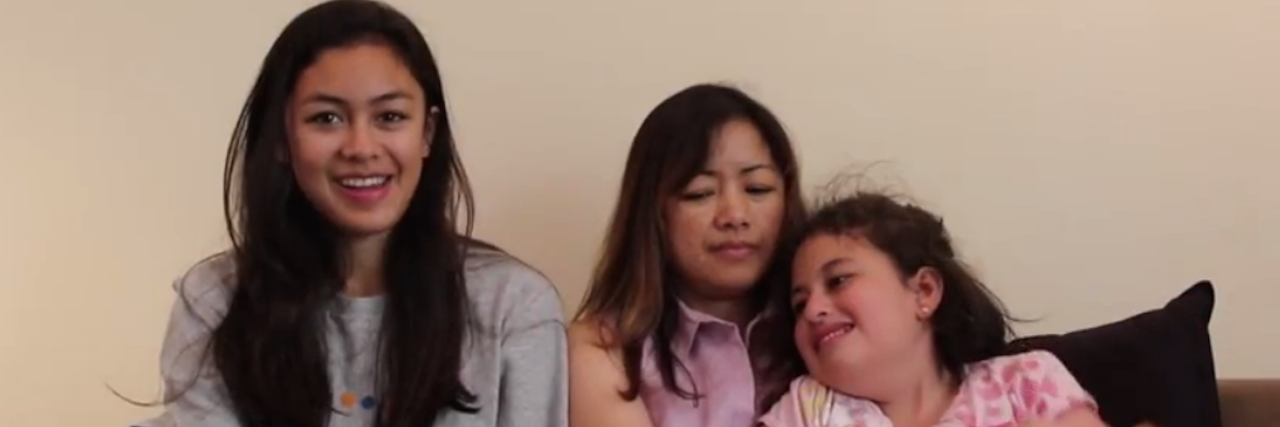What do you see when you picture a person with special needs? We see our sisters.
We are Kathleen Gaffney, Angelica Kolar and Emma Villarreal, and we all have sisters with severe disabilities. We continue to advocate for inclusive and accepting places for everyone, regardless of ability or disability. Growing up in an area obsessed with academic achievement and accomplishment reinforced the concept that many people are clueless about the realities of those with special needs. Our sisters are not inadequate; they are simply different.
Here are three things we’d like you to know:
1) Don’t stare. It is natural to stare at things that are unusual and out of the ordinary. However, staring only creates an environment that is uncomfortable for everyone. If you are curious, please ask polite questions. Asking questions intrinsically acknowledges the presence of those with special needs, and makes everybody involved feel more welcome and accepted.
2) Consider your lasting impact. Snide looks and muted laughter is commonplace for those with special needs. Their uncontrollable tics, irregular speech patterns, or lack of “typical” social skills make them the easiest of targets. Some people assume those with disabilities cannot comprehend they are being teased, and therefore conclude their cruel behavior is victimless. They do not view their actions as bullying, but think they are being funny in a manner that will not offend anyone. However, it is clear that those with severe special needs can grasp when they are being laughed at or mocked. We ask that you ponder your actions, and consider the effect you have on the lives of not only the people with special needs, but the siblings and companions who are always within earshot.
3) Don’t feel sorry for us. There are undeniable hardships that accompany having a sibling with special needs, however there are also indisputable upsides most people are blind to. Once people realize we have a sibling with special needs, many inherently feel sympathetic. Unfortunately, their attempts to accommodate our feelings only put us in a more awkward situation as it bolsters the notion that people with special needs need us feeling sorry for them. Our sisters are so much more than their disabilities and deserve the respect given to any other person.
Rather than believing stereotypes about the disabled community, we hope our personal perspectives will help open your hearts and minds about how having a sister like ours really is “special.”
A version of this post originally appeared here on the Magical Bridge

